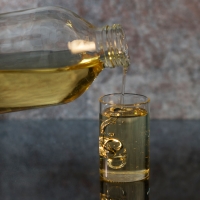Osmotic drying consists of replacing part of the water of the fruit with sugar, with a final drying ensuring its preservation. The fruit is cleaned, sorted and blanched in boiling water. It steeps in the sugar solution for about 3 days, then is dried by convection in hot-air driers. The fruit is cut up if necessary, then glazed with sugar and an anti-caking agent before packaging.
We offer a comprehensive range: ginger, banana, papaya, melon, mango, kiwi, strawberry, cantaloupe, grapefruit, pear, peach, apple, banana, …
Many cuts available including whole fruit, 3-5mm cubes, 8-10mm cubes, flakes, chunks, sticks, slices...
Applications: snacks, muesli, cereal bars, baking, pastry, confectionery, ice cream and cheese.
Packaging: 5 kg packs in 20 kg boxes.


























